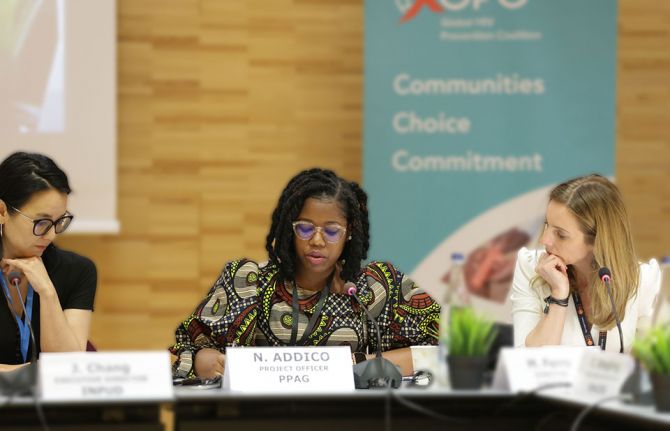
Feature Story
Invest in Women – It Pays
18 Octubre 2007
18 Octubre 2007 18 Octubre 2007At the Women Deliver conference in London (18 – 20 Oct 2007), UNAIDS Executive Director called for renewed political support and increased funding to make sure that women’s health become a national priority across the world. He stressed that healthy mothers and children are key to slowing down the AIDS epidemic.
Every minute of every day, a woman dies needlessly during pregnancy or childbirth, most in the developing world. Ten million women are lost in every generation. Huge disparities exist between rich and poor countries, and between the rich and poor in all countries. At the same time, four million newborn babies die every year, also from causes that are mainly preventable. Evidence and experience shows that with increased political will and adequate financial investment, most women and newborns can survive so that families, communities and nations can thrive.
Bringing to light the critical connection between women’s health, rights, education and poverty reduction, the global conference on maternal health ‘Women Deliver’ is taking place in London from 18 to 20 October 2007.
Co-Chaired by Mary Robinson, president of Realizing Rights, former president of Ireland, and former United Nations High Commissioner for Human Rights and by Asha Rose Migiro, Deputy Secretary-General of the United Nations, the conference encourages governments to integrate women’s health and rights into national plans and strategies.
At the Conference opening, UNAIDS Executive Director Peter Piot, underlined a number of similarities between the response to women’s health and the AIDS response. He cited the prevention of mother to child transmission of HIV as an intervention with proven results that is a potential catalyst to strengthen health systems.
Dr Piot noted that women are paying a heavy price today as a result of years of under-investment – including within the AIDS response. Despite accelerating progress in AIDS over the past few years, women and girls are still being left behind. About 18 million women are living with HIV today – many of them poor, most of them stigmatized, some at risk of violence, and too few are able to access HIV treatment. Only one in ten women in developing countries has access to drugs to prevent transmission of HIV to their children.
In his conclusion, Dr Piot suggested that the world should start talking about women’s health, morbidity and mortality and not just maternal mortality. He underlined that taking the issue beyond the health sector and focussing on socio-economic implications would attract governments’ attention in ways that women’s health has not.
The Women Deliver Conference runs until 20 October 2007
Links:
Read more on the Women Deliver conferenceRead more on the Global Women’s Coalition on AIDS
View the video by the Global Coalition on Women and AIDS that is being shown at the conference
Related
 Responding to gender-based violence through sorority and information
Responding to gender-based violence through sorority and information

15 de diciembre de 2023
 The urgency of HIV prevention among adolescent girls and young women
The urgency of HIV prevention among adolescent girls and young women

01 de junio de 2023
 Asia Pacific women living with HIV speak out about rights violations
Asia Pacific women living with HIV speak out about rights violations

08 de marzo de 2023
